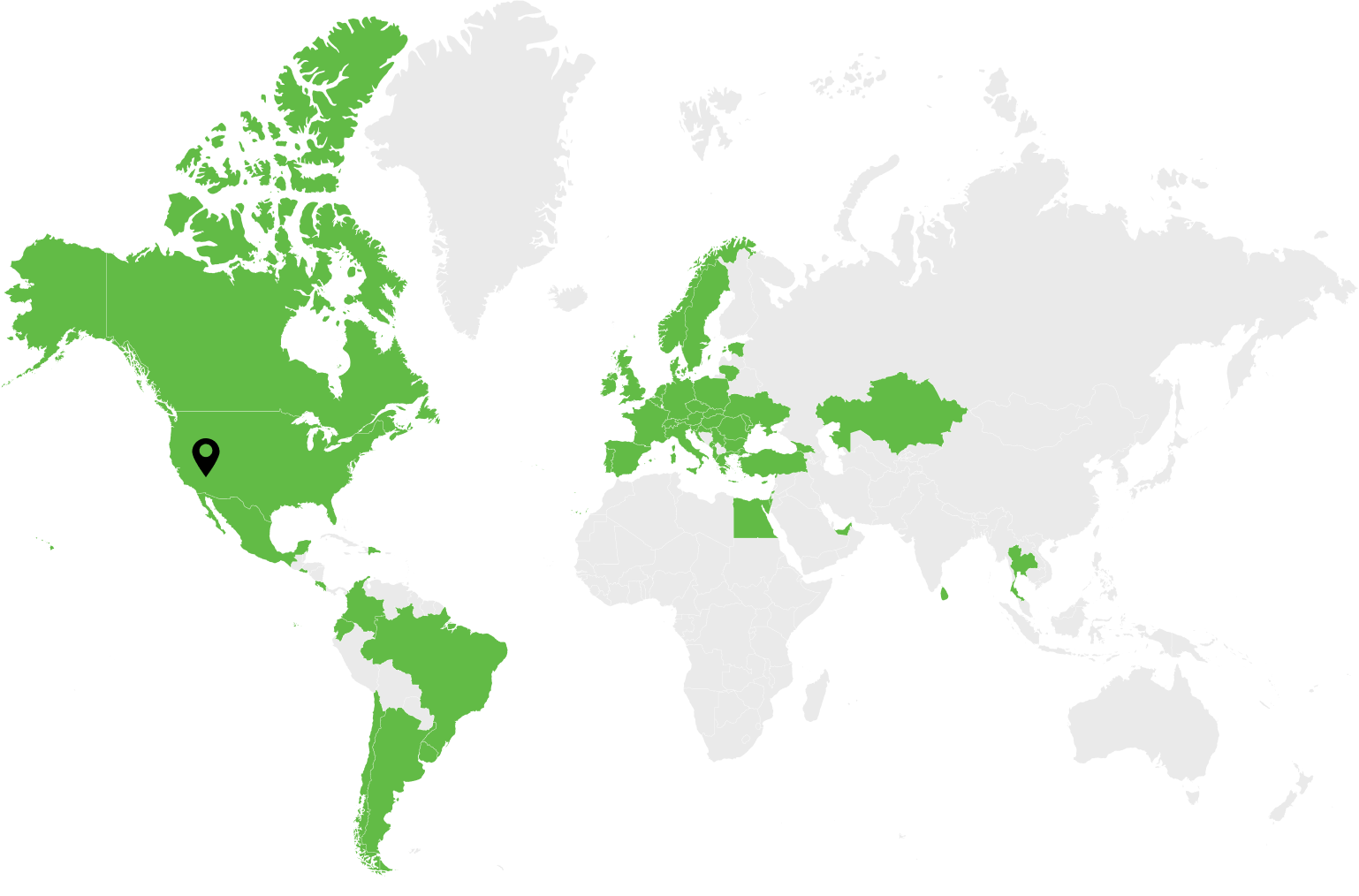Did you know that “On average, large IT projects run 45 percent over budget”? Even more, the same study by McKinsey & Company tells us that software projects are the most prone to cost overruns of all IT work.
There are many reasons why it’s difficult to control budgeting for software development projects. Most of these factors are tied directly to the financial burden of hiring full-time employees for all your IT needs.
An over-reliance on in-house software talent can lead to exuberant overhead costs, rising labor expenses, and unchecked budget overages. Conversely, outsourcing reduces the high costs of hiring in-house, especially in expensive regions like the United States.
In-House Development Challenges
When you hire full-time IT support, you commit your organization to financial burdens that can quickly compound with time.
High Overhead Costs
In-house development requires substantial spending on infrastructure, including office space, facilities, hardware, software licenses, and utilities. Spiceworks explains that “companies typically allocate between 29% and 35% of their IT budget towards hardware.” Since enterprises exceeding $1 billion in revenue spend approximately 2% of their revenue on IT, they incur $7 million annually in hardware expenses alone!
Regulatory requirements like HIPAA, GDPR, PCI DSS, and SOC 2 necessitate specialized tools like data encryption software and IAM systems and require IT teams to obtain certifications like CISSP, CISA, and CompTIA Security+. Deloitte shows that compliance costs for financial service providers have increased by over 60% since the 2008 financial crisis.
Labor Expenses
Hiring specialized talent for in-house software development can be prohibitively expensive, especially in high-demand fields like AI and blockchain. Competitive salaries, recruitment fees, and ongoing training costs quickly add up. These challenges are amplified in regions with limited talent pools and a high cost of living — such as New York and London.
Average annual salaries for software engineers in key markets include:
- Amsterdam: $204,673
- San Francisco: $170,000
- London: $170,000
Budget Overruns
In-house software projects are prone to budget overruns due to scope creep, misaligned priorities, and unforeseen technical challenges. Limited expertise in cost estimation and inefficient workflows also lead to inflated expenses. These overruns can reduce ROI and strain financial resources — to the point of catastrophe. As McKinsey & Company explains, “17 percent of IT projects go so bad that they can threaten the very existence” of businesses.
Cost-Efficiency Through Outsourcing
By outsourcing IT support, your organization avoids long-term financial commitments and benefits from a flexible, cost-effective solution.
Reduced Operational Costs
Outsourcing software development eliminates heavy infrastructure investments like office space, hardware, and compliance. By leveraging outsourced teams, businesses can minimize recurring costs and access cutting-edge technology without the burdens of in-house infrastructure. For enterprise-scale organizations, this means saving millions of dollars annually on overhead costs — especially in regulated markets with stringent compliance rules.
Reduced Labor Costs
Outsourcing partners maintain a global talent pool, eliminating the need for costly recruitment, salaries, and training. By leveraging talent from regions with competitive labor costs, companies can bypass high premiums for expertise.
Average annual salaries for software engineers in key outsourcing markets:
- Brazil: $63,300
- Mexico: $64,300
- Ukraine: $59,800
Outsourcing saves you from paying full-time salaries and allows you to tap into regions with competitive labor costs. Software engineers in Ukraine and LATAM are on average 60% more affordable than in places like San Francisco.
Flexible Engagement
Outsourcing offers flexible engagement models for budget control, allowing businesses to align spending with project scope and priorities. Moreover, outsourcing partners bring expertise in cost estimation and efficient workflows that reduce the risk of scope creep and unexpected expenses. As such, your organization can keep IT projects on budget, regardless of scale or difficulty.
Industry Spotlight: Restaurant Tech
The restaurant industry is a major beneficiary of outsourced software development services. For example, Dev.Pro recently partnered with the digital signage and experience platform Raydiant on a large-scale restaurant project. By developing a robust middleware solution, Dev.Pro enabled seamless connections between Raydiant’s digital signage platform and various POS systems.
Raydiant leveraged Dev.Pro’s skilled extension team to rapidly expand POS system support, develop tailored solutions for quick-service restaurants, and implement custom digital signage. This collaboration streamlined complex processes like integrating design, graphics, and engineering. In the end, Dev.Pro’s support helped Raydiant resolve its resource capacity issues with efficiency and ease.
Summary
Software development is inherently complex. Each project is unique, and seemingly simple problems can prove unexpectedly challenging to implement. As such, isn’t the smartest move to eliminate as many variables as possible?
The financial burden of hiring full-time employees makes it difficult to control software development budgets. Conversely, outsourcing reduces overhead, controls labor costs, and prevents budget overruns, offering a cost-effective alternative to relying solely on in-house talent. Ready to accelerate growth with industry-leading outsourced teams? Contact us today!

